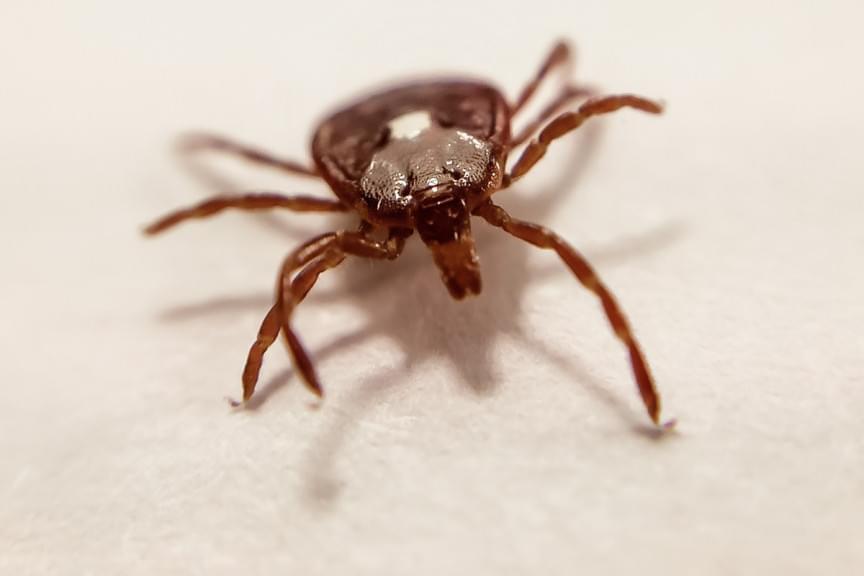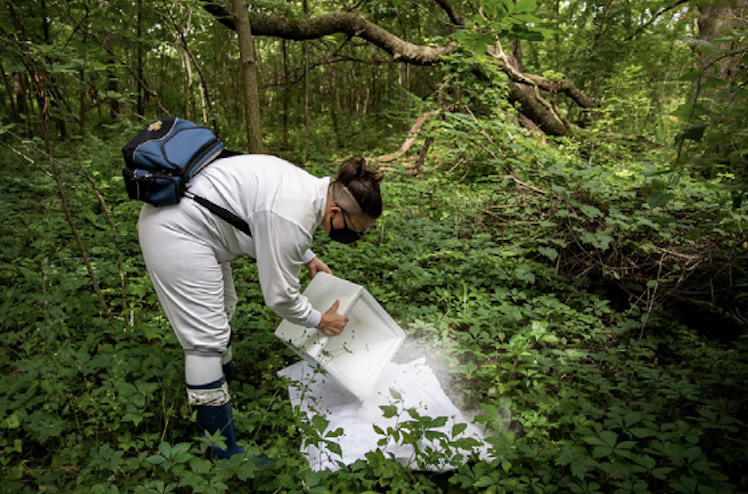Statewide Tick and Mosquito Surveillance

University of Illinois
It’s bug season. Which means in Illinois means ticks (which are actually arachnids, not insects), mosquitoes and other insects are looking to attach themselves to people and pets. The Illinois Department of Public Health announced that May is Lyme Disease Awareness Month, and here in Illinois, there is a team of entomologists working to track tick and mosquito populations, and trying to discern how climate change is affecting their populations.
The 21st spoke with an ecologist and a mosquito expert about how climate change is affecting mosquito populations and diseases ticks can transmit.

Graphic of tick-borne disease agents found through testing at the Illinois Natural History Survey Museum Medical Entomology Lab.
Graphic Credit: Danielle Ruffatto and Tricia Barker.

Dr. Holly Tuten, Vector Ecologist in the INHS Medical Entomology Lab, setting a carbon-dioxide trap used for their statewide tick surveillance program.
Photo Credit: Fred Zwicky.
Guests:
Holly C. Tuten, Vector ecologist with a background in parasitic arthropods who leads the statewide tick research and surveillance program at The Medical Entomology Lab at the Illinois Natural History Survey.
Chris Stone, Lab director and mosquito expert at The Medical Entomology Lab at the Illinois Natural History Surve
Prepared for web by Zainab Qureshi
Help shape our coverage on The 21st by joining our texting group and answering weekly questions. To join, text “TALK” to 217-803-0730 or sign up with your phone number below:

